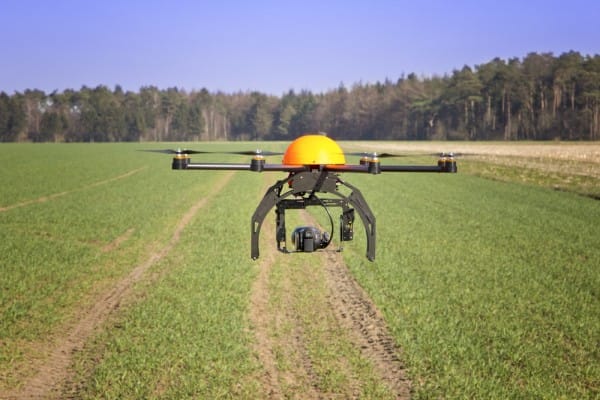6 Arguments in Favor of the Commercial Use of Drones


"Flying drone in the field"/ Shutterstock.com
The issue of Unmanned Aerial Vehicles (UAVs) -- more commonly known as drones -- has been highly disputed in the last year, not only for their military use abroad, but for their future commercial use in the United States. However, despite the legitimate concerns over the use of drones, here are 6 arguments in favor of the commercial use of drones:
1. Drones can revolutionize so many industries, especially agriculture
Drones can be used commercially in a broad number of areas: telecommunications, weather forecast, maritime monitoring, transportation, search and rescue, and oil and gas exploration to name a few. However, one of the industries that would benefit the most from commercial drones would be agriculture. Some consider that 80 percent of the industry's growth could come from precision farming, where drones could help farmers monitor crops in a more efficient and timely manner.
2. Using drones saves money
One of the reasons drones are likely to become very popular is the fact that they are not expensive. With many commercial drones being worth less than a $1000, they will become the most economically-sound solution in many industries.
In agriculture, for example, $300 UAVs can be used to check for disease and irrigation levels instead of $1,000-per-hour manned aircraft flyovers, according Chris Anderson, co-founder of drone manufacturer, 3D Robotics.
Many public agencies would also benefit from the economic impact of drones. Public entities such as emergency services, coast guard, and law enforcement could offset budget reductions by using drones instead of the much more expensive helicopters for anything related to aerial monitoring.
3. Drones are more energy efficient
Drones have a much lower energy consumption than most other aerial vehicles. With oil prices rising and increasing efforts to reduce reliance of fossil fuels, drones would be very helpful in achieving this goal.
On May 2, the U.S. Navy was given its first drone squadron. The video presentation of the drones highlighted how the use of the aerial vehicles fueled with biofuel would further the Navy's goal of becoming more energy efficient.
4. The drone industry will create jobs
Congress gave the FAA until 2015 to integrate Unmanned Aerial Vehicles into the National Airspace System. Once this is achieved, it is expected that up to 30,000 drones could populate U.S. airspace in the first years. The Association for Unmanned Vehicle Systems International (AUVSI) projects that the integration of drones would have an $82 billion economic impact between 2015-2025. During this period, the drone industry would create 100,000 jobs.
5. States are passing laws to protect privacy rights
One of the main concerns over the commercial use of drones is their impact on privacy rights. This concern is being addressed by state legislatures around the country as 34 states are currently trying to pass legislation that would restricts the use of drones.
Drones will not be allowed in the national airspace before 2015, which will give states time to create the necessary legal framework.
6. The private sector will also find solutions to privacy concerns
The upcoming introduction of drones in the nation's airspace has already sparked reactions from private companies to find a system that will protect personal privacy. A startup company in Washington, D.C. is currently working on a device that would recognize the "acoustic signature" of a drone and would alert an individual when one is in their area. If laws are not able to ease concerns over privacy infringment, there will some private initiatives to fill the gap.
To discuss the pros and cons of the commercial use of drones in America, join IVN on Thursday, May 9, at 5pmPST/8pm EST for our Tweetchat on drones; follow and use the hashtag #IVNchat



